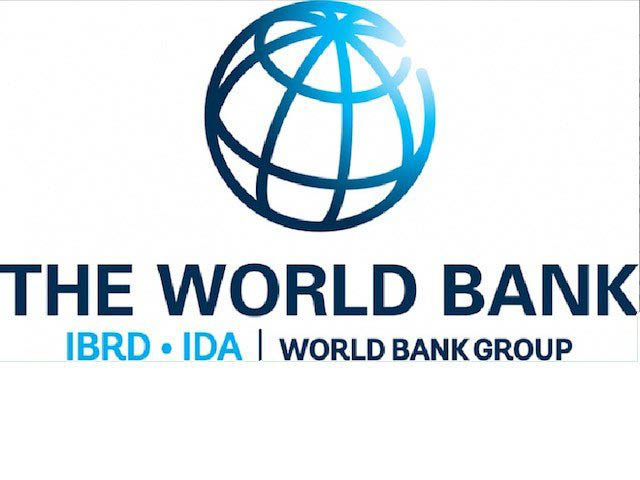As international organisations continue to increase their focus on the prognosis for both the speed and extent of Caribbean economies’ recovery from the effects of the COVID-19 pandemic, the World Bank was last week projecting that while there is likely to occur a ‘degree of recovery” in Caribbean Community (CARICOM) countries this year, the ongoing impact of the pandemic notwithstanding, it was unlikely that the extent of that recovery would be sufficient to compensate for the ravages of 2020.
During a Caribbean Media Corporation (CMC) round table with journalists from the region last week, World Bank President David Malpass reportedly appeared skeptical about the 3.8% economic recovery figure proffered by the Barbados-based Caribbean Development Bank (CDB) recently. The World Bank, he said, will shortly be releasing its own projections. “We will be coming out with our own forecast for the region, but your general point is right that we expect there to be a degree of recovery in the Caribbean but not enough to make up for the downturn in 2020,” a somewhat cautious Malpass stated.
In February the CDB had proffered its 3.8% average GDP growth figure for the region this year though it had cautioned that there was a degree of uncertainty associated with that projection arising out of what is still the ongoing uncertainty linked to the likely behaviour of COVID-19, going forward.
The Inter-American Development Bank (IDB), meanwhile, in its own most recent prognosis for the post-COVID economic fortunes of the Caribbean wants the region to focus on the building of sound fiscal, monetary, and financial institutions as a prerequisite to boosting economic growth in the respective Caribbean countries. The IDB’s particular recommendation in this regard is that the Caribbean move to strengthen its indigenous institutions to help promote economic growth and that this development be complemented by sustainable fiscal management, effective monetary policy, and resilient financial systems.
As reported by the Stabroek Business recently, the IDB’s assessment outlines reform agendas for six CARICOM countries, namely, The Bahamas, Barbados, Guyana, Jamaica, Suriname, and Trinidad and Tobago, all borrowing member countries, asserting that their levels of economic growth had lagged behind those of member countries in Latin America.
Meanwhile, beleaguered small businesses in the Caribbean can, it seems, anticipate a further measure of relief in the year ahead on account of the approval by the European Union and the Caribbean Export Development Agency (Caribbean Export) of funding to come to the rescue of small and medium-sized enterprises across fifteen countries in the region. The support initiative targets what, in the context of the Caribbean, are vital sectors such as agro-processing, manufacturing, and the creative industries.
Evidence of a tough recovery road for small businesses in the Caribbean has become particularly apparent in Guyana where the Stabroek Business has been reporting persistently on how enterprises in the agriculture and agro-processing sectors, particularly, are faring. The challenges in these sectors have manifested themselves chiefly in the loss of earnings resulting from COVID-19 strictures that restrict their ability to cultivate, manufacture, and trade, as well as adjusted consumer demand and resulting diminished markets for several products. Compromised farm-to-market logistical arrangements have also been a factor in diminishing the viability of enterprises in the agriculture and agro-processing sectors. These constraints apply even more severely to small businesses operating in the non-coastal areas of the country. In the instance of Guyana, the level of official domestic support for the salvaging of small businesses has been relatively meagre. In the wake of the disclosure in the recently passed 2021 budgetary allocations there have been responses to the effect that the $250 million budgetary allocation for the Small Business Bureau (SBB), the country’s most prominent small business support entity is grossly inadequate given that support for those micro and small businesses that fall under the ambit of the SBB will include helping to finance significant numbers of enterprises that have been left in a perilous condition on account of the ravages of COVID-19.
Across the Caribbean there have been varying levels of responses to appeals from countries in the region for much needed financial support to small- and medium-sized enterprises (SMEs) including vital sectors such as agriculture, agro-processing, manufacturing and the creative industries. One such response has been the US$1.1 million grant funding initiative for regional SME’s from the Caribbean Development Bank (CDB) through its Direct Grant Support Programme (DGSP).
The persistent ‘hedging of bets’ by the international aid agencies, including, most recently, the World Bank, with regard to projected growth levels and speed of recovery in the region, going forward, continues to be one of the stiffest challenges for governments in the region as they seek to navigate their way through a crisis the eventual outcomes of which remain decidedly unpredictable.





